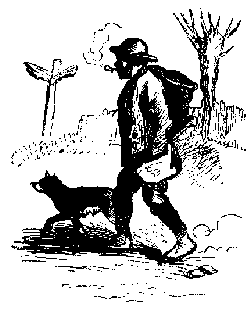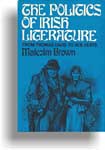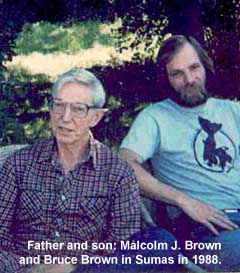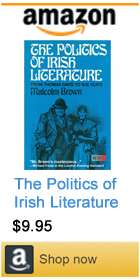Chapter Eight
Beside the Sickbed:
Carlyle, Duffy, Dr. Cullen
AFTER BALLINGARRY the physical Irish nation lay ruined; politically, it was deader than dead. Seven of the top Confederate leaders were convicts in Van Diemen's Land. Most of the rest were hiding in Paris or New York. Further resistance was out of the question; only a fantastic like Lalor could think of insurrection in such an atmosphere. Young Ireland's seven-year struggle had apparently been swept away as though it had never been. The reading rooms were all gone, and the Irishmen who had been stirred by Davis' cultural nationalism were in the famine grave pits, in America, in the workhouse, in prison. Even temperance was defunct, and Irishmen with personal problems were once more free to drink themselves into stupefaction at pleasure. Bit by bit John O'Connell surrendered the assets of the dead Repeal Association to his creditors: first went the instruments of the brass band, then the library, finally Conciliation Hall itself. Once again Ireland found herself at the nadir of the cycle.
Famine mortality was already subsiding when Lalor's small military adventure took place in the autumn of 1849, though the suffering continued for another two years. A new visitation of the potato rot appeared in 1849, and 1850 brought still another. Then the worst was over, and the toll of the whole calamity could be reckoned in perspective. The precise number of the victims would never be known, but an estimate of the mortality was possible. By extrapolation from earlier censuses one could determine that Ireland had a population of eight and a half million in 1846. But in 1851 only six and a half million persons could be found. Roughly one million of this deficit represented those who had perished directly from starvation or hunger-induced fevers.' This phase was followed by a panic flight, "as if pursued by wild beasts," among the uprooted peasantry. The second million of the missing persons had emigrated, or at any rate they had left Ireland aboard ship-thousands of them, 10 to 12 percent by some estimates, died in passage to America or in quarantine. This exodus of the Irish, beginning with the "black '47," would continue without interruption for one hundred consecutive years.
The famine did not respect class lines, for the typhus, once it became epidemic, could not be contained. But the most savage effects, naturally, were suffered by the peasantry. The 1851 census showed that famine mortality, together with Gregory's quarter-acre clause plus a great new wave of legal ejectments- which grew bolder as peasant resistance collapsed - had eased the landlords' puzzlement over how to clear the land of "redundant population." By 1851 three-fourths of the cottiers' plots had disappeared off the face of the land. Three-fourths of the small tenancies of one to five acres had also disappeared, having been amalgamated into larger farms. About two million rural persons had been violently dislodged to make room for the grazier. Malthus' imperious primary check had undoubtedly made a great deal of solitude in Ireland, and the recurring image used by travelers to project the sensation of the postfamine countryside was its vast emptiness and silence:
- We and our bitterness have left no traces On Munster grass and Connemara skies. .
Not quite all the traces were gone, though, for Wilfred Blunt saw the outlines of the old hearths and potato patches all over western Ireland a halfcentury after the famine
How was one to grasp so monstrous a calamity? How was one to interpret it? William Stokes, a doctor during the famine, observed that "nations, as well as individuals, must purchase experience, even though the cost is ruinous." If the famine was the price of wisdom, what was the wisdom that it had purchased-supposing one to be content neither with banalities about the mysterious ways of Providence nor with the self-congratulations of the Malthusians, who saw their sagacity satisfactorily confirmed in the empty countryside?
II
In the summer of 1849 Thomas Carlyle came to Ireland to give this very question his closest attention. "Ireland really is my problem," he told himself, "the breaking point of the huge suppuration which all British and all European society now is."4 As Young Ireland's most distinguished friend abroad, he was presumed likely-within his very peculiar limitations-to be sympathetic to the Irish outlook, if an Englishman could be. Ten years earlier he had declared his good will in Chartism: "England is guilty towards Ireland and reaps at last, in full measure, the fruit of fifteen generations of wrongdoing." Carlyle arrived in Dublin with his benignity intact, for he declined Lord Clarendon's dinner invitation, preferring to put himself in the hands of Young Ireland instead. His warmest Dublin admirer, John Mitchel, was unfortunately some thousands of miles away; but Gavan Daffy had been released from jail just in time to offer him a guided tour of the country, a second-best but tolerable cicerone. The two set out tête-à-tête by train and Irish car to circle the country clockwise from Dublin, stopping along the way to talk with provincial clubmen who had been released from jail at the restoration of habeas corpus...
|
|
Table of Contents
|

|
Astonisher.com is pleased to offer these excerpts from The Politics of Irish Literature by Malcolm Brown...
Praise for
The Politics of Irish Literature |
 |
|
"This brilliant study of the intersection of politics and literature in Ireland amounts to a dazzling portrait gallery. Reading it one feels about one the breath, warmth, and passions of the dead all come alive again."
-- Sean O'Faolain in the Manchester Guardian
"Mr. Brown's masterpiece has made me want to hire a nearby housetop and recite whole chunks to every passerby..."
-- Michael Foote in the London Evening Standard
"The author of the best book on George Moore now gives us what is in all likelihood the best book on the politics of modern Irish literature."
-- Virginia Quarterly Review
|
|

University of Washington Professor Malcolm J. Brown (1910 - 1992) with his son, Bruce Brown, in Sumas, WA, July 1988.
|
Additional reading -- Malcolm Brown's George Moore: A Reconsideration. Also see Bruce Brown's commentary on The History of the Corporation for Malcolm Brown's contribution to that work.
|
|
|






